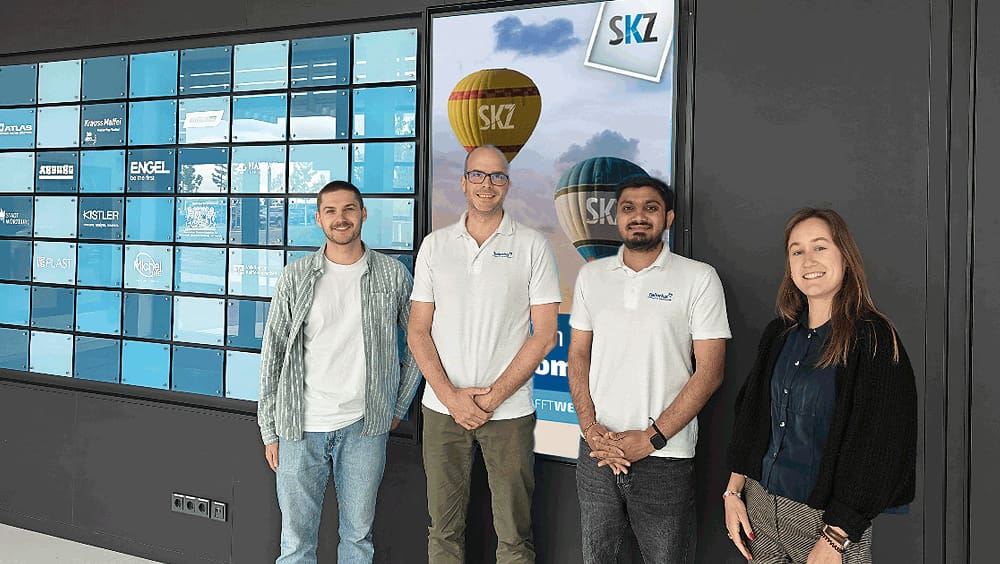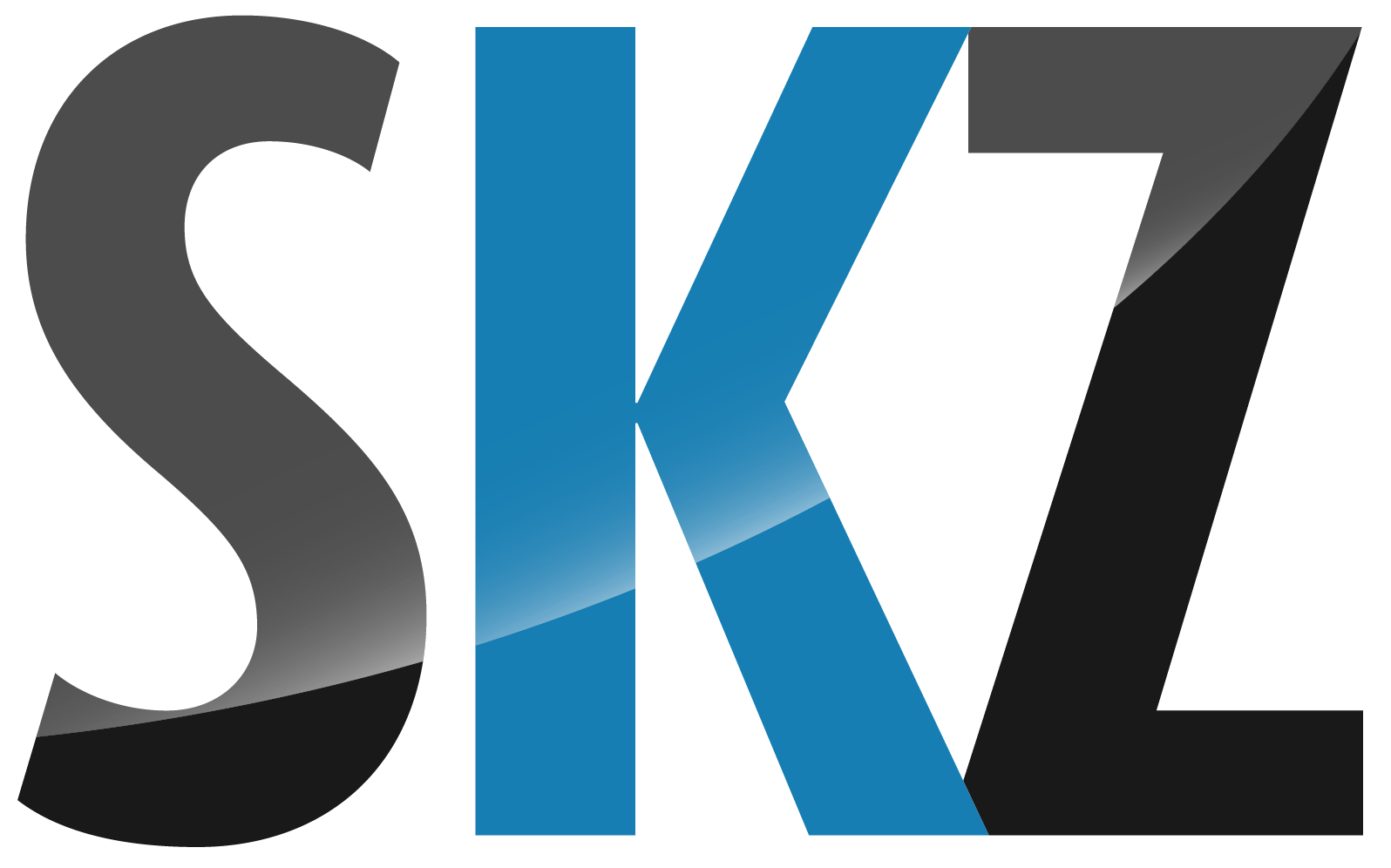The material from which product passports are made
In the KIMaTex research project, Tailorlux GmbH is working with the SKZ plastics center to develop a system that can reliably detect components such as elastane or PET, as well as contaminants such as PFAS, in textiles and make them available for a recyclable and traceable product passport. To this end, a measuring system for recording spectra and images is being developed in combination with artificial intelligence (AI) to determine the ingredients in textiles. The application will significantly simplify current challenges in the textile industry, such as traceable quality and reuse. This will enable companies to reduce their costs and advance the circular economy of textiles in society.

Successful project launch: At the first meeting between SKZ and Tailorlux GmbH, the course was set for successful collaboration on the KIMaTex project. Pictured from left to right: Tim Dees (SKZ), Tobias Herzog (Tailorlux), Sujeet Kanani (Tailorlux), Cosima Güttler (SKZ). (Photo: André Stollberger, SKZ)
Innovative textile analysis for the circular economy
The textile industry is facing change: with several hundred million tons of textile fibers in Europe alone, it is a major economic sector—and at the same time an enormous ecological challenge. This is because, up to now, most used textiles have been sent to landfill or incinerated. The reason for this is their complex material composition, which includes substances such as polyester and cotton, as well as various protective impregnations. In addition, many materials are visually indistinguishable. Precise, economically viable sorting for high-quality recycling is virtually impossible with conventional methods.
This is where the KIMaTex research project comes in. The aim is to develop an AI-supported digital measurement system that enables reliable analysis directly on the actual material – mobile, precise, and traceable. Using spectral data and images, the system recognizes both the proportion of specific fibers such as PET or elastane and contaminants such as PFAS. Unlike previous software solutions, KIMaTex is based on real measurement data and provides reliable information on the actual material properties – ideal for digital product passports and single-type further processing. This opens up new opportunities for a circular economy in the textile industry.
ZIM makes it possible: SMEs as drivers of global innovation
Launched in January 2025, KIMaTex is funded by the German Federal Ministry for Economic Affairs and Energy as part of the Central Innovation Program for SMEs (ZIM).
The project is a prime example of the innovative spirit of small and medium-sized enterprises: It addresses an urgent environmental problem while offering an economically viable perspective for the textile and recycling industry. Tailorlux GmbH is developing the digital measurement system and material data acquisition, while SKZ is training the AI models, preparing the data structure, and implementing the application. The basis is the TailorScan measuring device, which precisely records spectra in the visual and infrared range. Using this data and images of the textiles, SKZ is developing artificial intelligence that can recognize material types and contamination.
After successful evaluation, the system will be incorporated into a user-friendly application that enables intuitive analysis on site and connection to digital product passports—an important step toward greater transparency and sustainability in the textile industry.
The project is funded by the German Federal Ministry for Economic Affairs and Energy as part of the Central Innovation Program for SMEs under the reference number KK5068053AB4 from January 1, 2025, to November 30, 2026.


